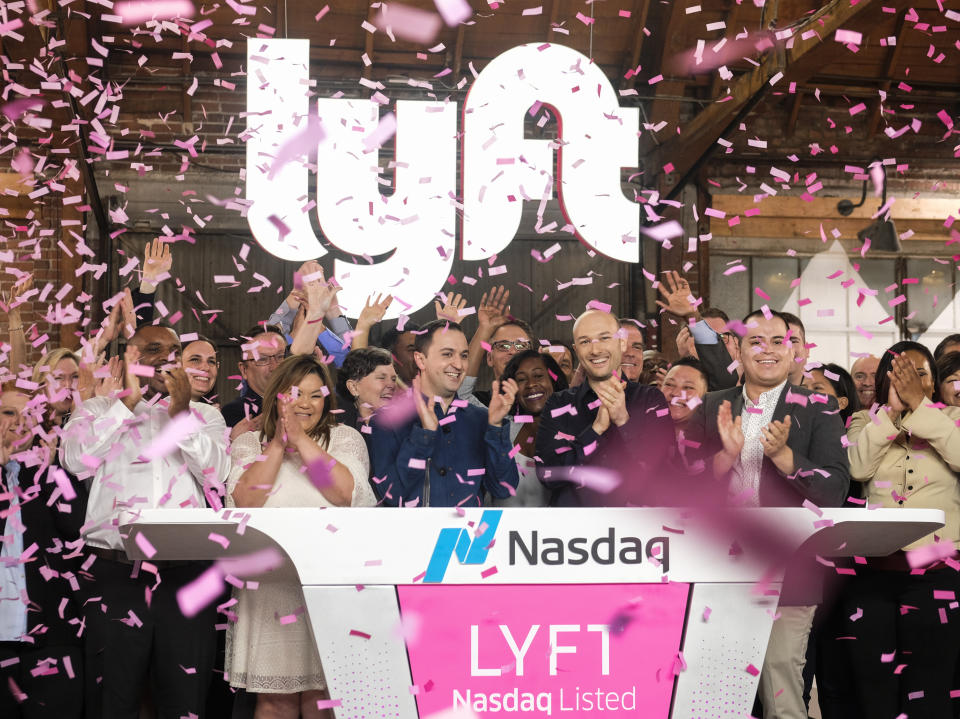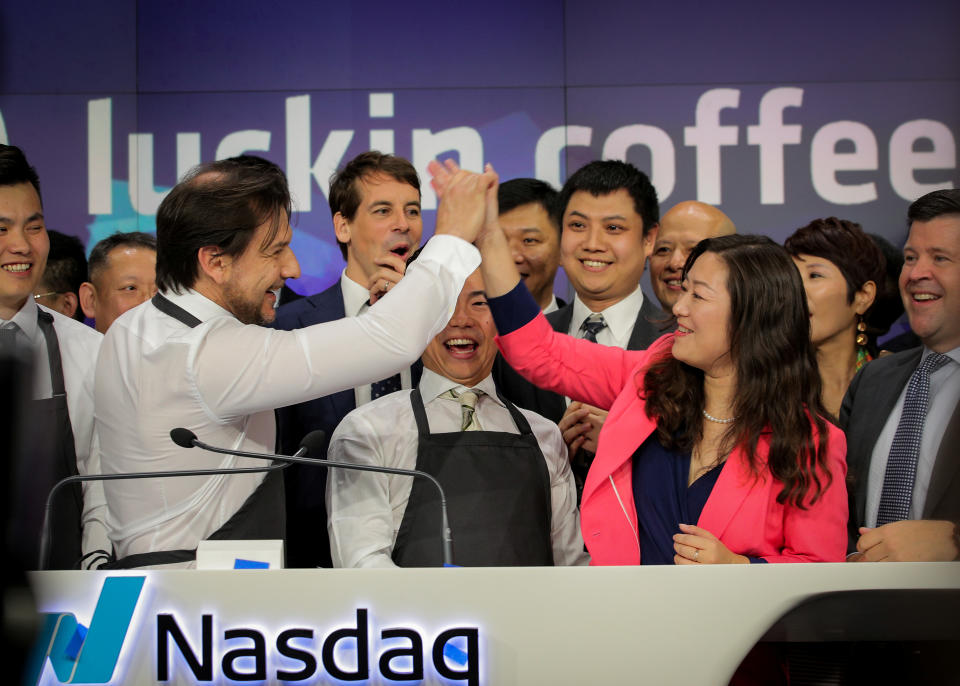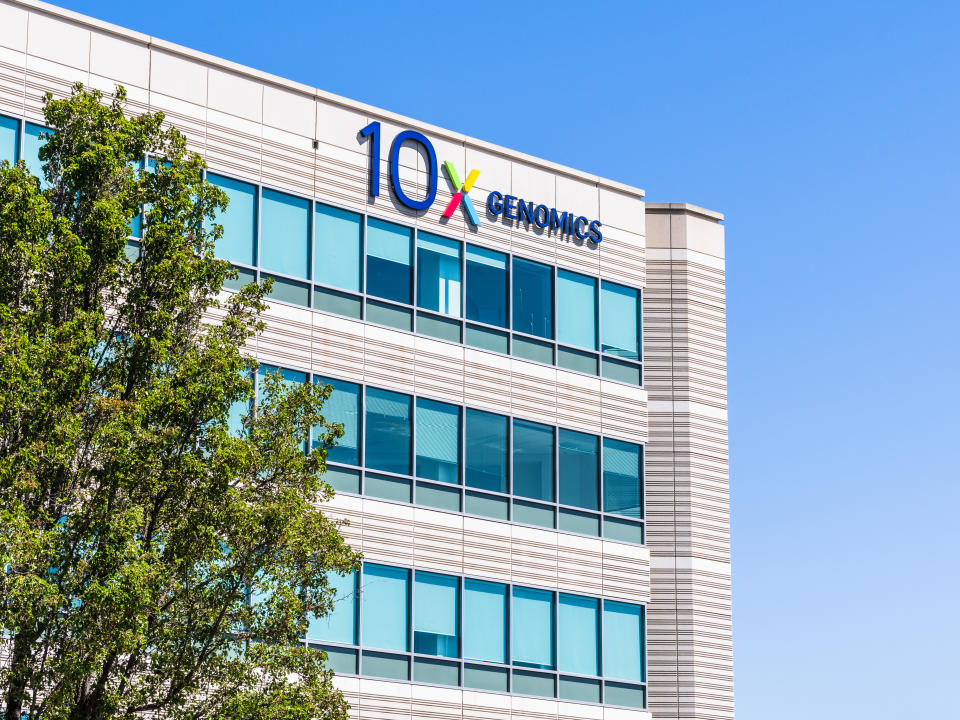The biggest IPO trends of 2019
The past year saw some of the most high-profile initial public offerings on the major U.S. exchanges in some time. We’re talking about highly anticipated IPOs from the likes of Uber (UBER), Beyond Meat (BYND), medical stocks, high flying enterprise software companies like Slack (WORK), and more.
With dozens of IPOs launched throughout the year, some clear trends have emerged from Chinese companies to enterprise software to biotech. These aren’t necessarily the best performing kinds of IPOs, but they were certainly among the most watched categories of the year.
These are the hottest IPO trends of 2019.
Unicorns
Unicorns dominated much of the IPO conversation in 2019. These companies — startups valued at $1 billion or more — have been a topic of conversation for years now. But 2019 was their time to shine on the public markets.
“We had 24 or 26 IPOs in the unicorn population,” explained Jackie Kelley, EY Americas IPO and financial accounting advisory services capital markets leader.
“A lot of them needed to get to the point where they had a predictable business,” she said. “And I’ll say some of them are still an evolution, these are very disruptive companies, there are many things that impact them that are, to some degree, outside of their control.”

Unfortunately, some of the companies that became virtually synonymous with the term unicorn ran into a brick wall when they IPO’d. We’re talking about the likes of Uber, Lyft (LYFT), and SmileDirectClub (SDC), which were once touted as being valued as high as $120 billion, $15.1 billion, and $8 billion, respectively.
As of the close of markets on Dec. 9, Uber was off 38.48% from its IPO price of $45, while Lyft was down 36.92% from its IPO price of $72. SmileDirectClub, meanwhile, has been clobbered. The teledentistry company’s stock price was down a staggering 64.17% from its IPO list price of $23 as of the market close on Dec. 9.
According to Morningstar senior analyst Ali Mogharabi, Uber and Lyft in particular were hit hard because they’re long-term investments that will still take years to become profitable.
“Uber is down mainly because of how long it’s going to take for the company to become profitable,” Mogharabi said. “The investors in that name require patience. Even in the short term it didn’t generate much return for the investors when it went public.”

Not all unicorns took a beating in 2019, though. Video conference software company Zoom (ZM) was up an impressive 83.16% as of Dec. 9 from its $36 IPO list price, while cloud-based security company CrowdStrike (CRWD) was up 44.12%. Exercise equipment and video company Peloton (PTON), which has faced severe backlash from its recent holiday commercial, is also up 19.90% since its IPO as of Dec. 9.
Then there’s meat-alternative maker Beyond Meat, which has seen its stock price fluctuate wildly since it debuted at $25 a share in May. At one point, the company’s stock was flying as high as $239 a share, before coming back down to $74.05 on Dec. 9. Still, that’s good enough for a jump of 196.20% from its IPO list price.
Pinterest (PINS) went public in April at $19 a share, and has fallen 4.16% to $17.99 as of Dec. 9. But, according to Mogharabi, the company should become profitable in 2021, and could end up owning 1% to 2% of the online advertising market.
Enterprise software
Enterprise software offerings had a huge 2019 with some of the biggest companies to IPO coming from the sector. Slack, CrowdStrike, Zoom, and PagerDuty (PD), all of which were unicorns, are among some of the companies that hit the public markets this year.
Of the bunch, the corporate messaging app Slack has garnered plenty of attention, though it didn’t make its debut via a traditional IPO. Instead, the company used a direct public listing. The main difference between an IPO and a direct listing is that rather than offering new shares of the company to investors, Slack offered existing shares held by early shareholders. Spotify made its debut via a similar mechanism in 2018.
Since its public listing, Slack’s stock has gone from an initial reference price of $25 to $23 as of market close on Dec. 9. That’s a drop of 8%. At launch the stock was trading as high as $42 a share, but has since come back down to near its listing price.

CrowdStrike, which despite being accused by President Trump of being part of a debunked Ukranian conspiracy to steal a Democratic National Committee computer server, has nevertheless had a scorching run since its IPO. The cloud-based security company provides enterprise users with everything from antivirus software to device controls and incident response.
Zoom, however, stands apart from CrowdStrike and Slack, because, unlike its fellow Unicorns, it’s actually making money. That’s seems to be a rarity in the world of big-name tech IPOs. It’s also likely part of the reason the company’s stock has performed so well since its debut.
Then there’s PagerDuty. Another enterprise offering, PagerDuty hit the public markets in April at $24 a share. Since then the company’s stock price has dropped 2.42% to $23.42 as of market close on Dec. 9. PagerDuty exists to help companies deal with incidents within corporate networks including issues like service outages. Hence the name PagerDuty. Like Slack and CrowdStrike, though, PagerDuty still hasn’t turned a profit.
Chinese companies
Some of the hottest IPOs in 2019 came from outside the U.S., specifically China. The world’s second-largest economy has been pumping out companies eager to hit U.S. stock markets for years, and 2019 saw a raft of them.
The most impressive of the lot has been Luckin Coffee (LK). The company’s stock has been on an absolute tear, up more than 78% since it debuted on May 17 at $17 per share. The coffee chain is seen as a growing competitor to Starbucks’ operation in China. And its model, which includes fast service without the seating areas found in many Starbucks locations, has allowed it to open more than 3,000 stores in just two years.

Also out of China is DouYu (DOYU), a game streaming service similar to Amazon’s Switch. Douyu, which is backed by Chinese tech giant Tencent, went public in the U.S. on April 22 at $11.50 per share. Since then the company’s stock price has plummeted 38% to $7.12 as of Dec. 9.
According to Capital Renaissance principal Kathleen Smith, DouYu is still losing money.
“[The company has] low growth margins, and was barely making operating profits in 2018, and in 2019 they’re still expected to lose money,” she explained.
There was also online education company YouDao (DAO), which hit the market in October at $17.50 a share. Since then the firm has seen its stock price fall 17.18% to $14.08.
Biotech and pharmaceuticals
The biotech and pharmaceuticals industries saw 64 healthcare IPOs in 2019, the most of any industry, adding to an ongoing trend in which healthcare IPOs have dominated the market.
“It was so interesting, because there were probably about 10 years were we didn’t have really any healthcare IPOs,” Kelley said. “But now you’re seeing, especially with technology getting much more integrated with these healthcare companies, how tech enabled they’re all becoming. They have become very, very attractive to the investor group.”
One of the most successful so far was from 10X Genomics (TXG).

A biotech startup, 10X Genomics produces gene-sequencing platforms that scientists are using to look at cells linked to various cancers, kidney disease, cerebellar development and more. Originally priced at $39 per share, the company’s stock price jumped 62.05% to $63.20 per share as of Dec. 9.
“It was not profitable, but you could see the setup for profitability,” Smith explained. In fact, the company should become profitable by the end of this year, she added.
Castle Biosciences (CSTL), a biotech firm that offers diagnostic tests for dermatological cancers, kicked off its IPO in July at $16 and has since jumped 79.13% to $28.66 as of Dec. 9.
Karuna Therapeutics (KRTX) is a company dealing with the treatment of schizophrenia, Alzheimers, and pain. After launching its IPO at $16, the company’s stock has skyrocketed 308.31% to $65.33 by Dec. 9. And those aren’t the only such stocks that have performed well this year.
BridgeBio Pharma (BBIO), a clinical-stage biopharmaceutical company that works on genetic diseases, also launched its IPO in 2019.
According to Smith, the company is is working on a portfolio of drugs for genetic diseases. The firm’s lead drug is currently in phase III trials, while its other is in phase II trials.
Since it went public at $17 a share, the company’s stock has been on fire, jumping 113.29% to $36.26 a share as of Dec. 9.
We’ll likely see similar trends continuing into 2020, with dozens more IPOs set to hit the market. We’re talking about the likes of Postmates, and even Airbnb, which might opt to go the same route as Slack and go public via direct listening.
In other words, it’s sure to be another interesting year.
More from Dan:
Got a tip? Email Daniel Howley at [email protected] or [email protected], and follow him on Twitter at @DanielHowley.
Follow Yahoo Finance on Twitter, Facebook, Instagram, Flipboard, SmartNews, LinkedIn,YouTube, and reddit.
